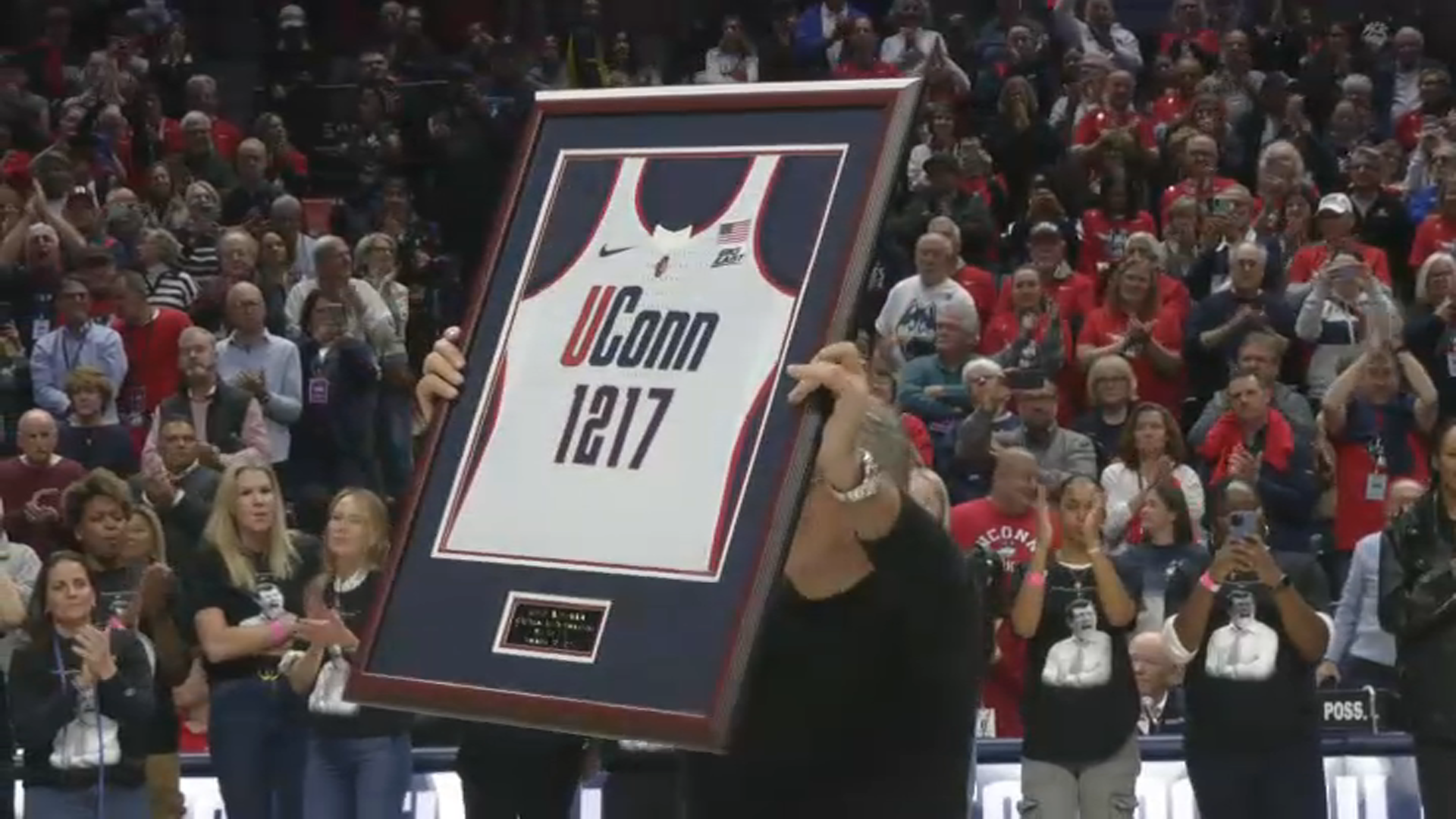On Thursday night, dozens of people came out to a meeting in Tolland to learn about the red flags of human sex trafficking.
River of Life Christian Fellowship and Tolland Local Prevention Council sponsored the presentation, which took place at Tolland Middle School.
In front of that large audience, a victim of sex trafficking told her story. She was groomed to be trafficked beginning at the age of 13, and she said she felt hopeless and worthless. NBC Connecticut is not revealing her identity to protect her.
"I think one of my greatest questions was, 'Who am I?' I think for a long time my answer was that I was just a body," said the young woman.
Those who presented said there are many red flags of human trafficking including reluctance to explain tattoos, avoiding eye contact, poor hygiene, bruises, and having unexplained new items like clothing and electronics.
Brian Sibley, a senior assistant with the New Haven State's Attorney and coordinator for the state prosecutor's office for trafficking says one of the biggest myths is that it doesn't happen here.
"It's here and there are people that are willing to sexually exploit for money in our own community. Every community across the state is vulnerable. There are so many at-risk kids. It's not somebody else's problem. It's all of our problems," said Sibley.
Local
Yvette Young, project director for The Village Human Anti-Trafficking Response Team, says in 2018 there were 210 high-risk or confirmed victims of trafficking in the state and 212 the year before.
"It's domestic children. It's not kids being brought in from other countries. It's our kids that live right here in our communities that are being victimized," said Young.
Sibley says a sting done last year in Guilford shows how prevalent sex trafficking in the state is.
"There were two ads that were put on a commercial ad list, and within a 30-day period that we had the ads up, there were more than 5,000 hits responding to have sex with an underage child," said Sibley.
Experts say the most powerful tools for parents are awareness and education. They say it's also important to believe children.
"When people understand the issue, they understand the warning signs and red flags, they start to identify more youth, and so they're able to intervene or ask the right question and get the supports the child needs," said Young. "Monitor your children's activities on social media and online, have a conversation about trafficking and the fact it exists."
For the victim who spoke, the audience gave a standing ovation for the power of her story and her strength to share it.
"I think it is remarkable the dramatic difference it makes in someone's life when someone sees them as a person with value and doesn't compromise them with that," said the young woman.
If you suspect the trafficking or exploitation of children, you can call the national human trafficking hotline at 1-888-373-7888.



